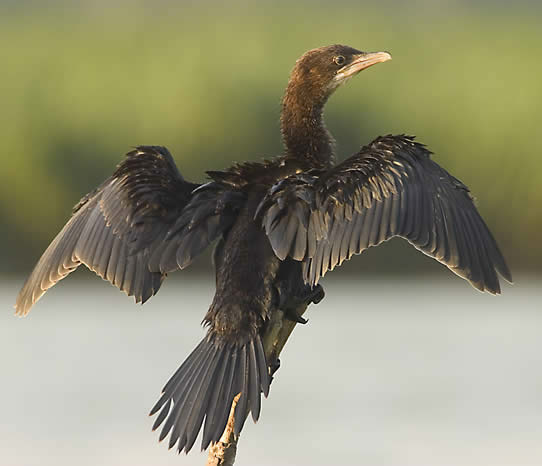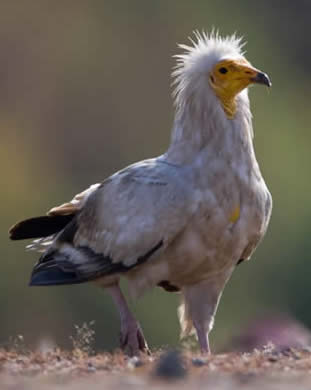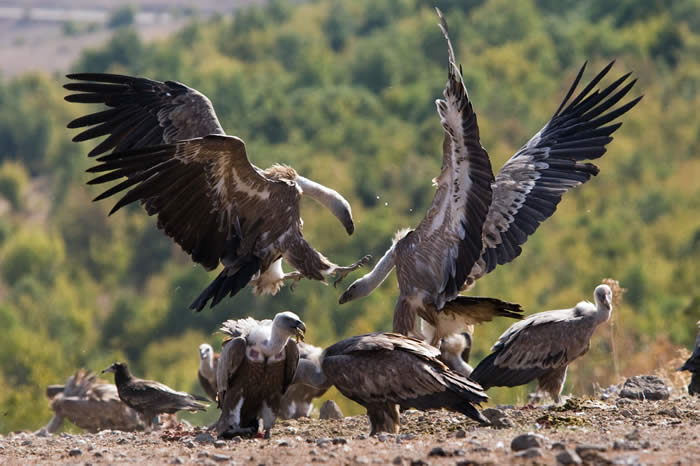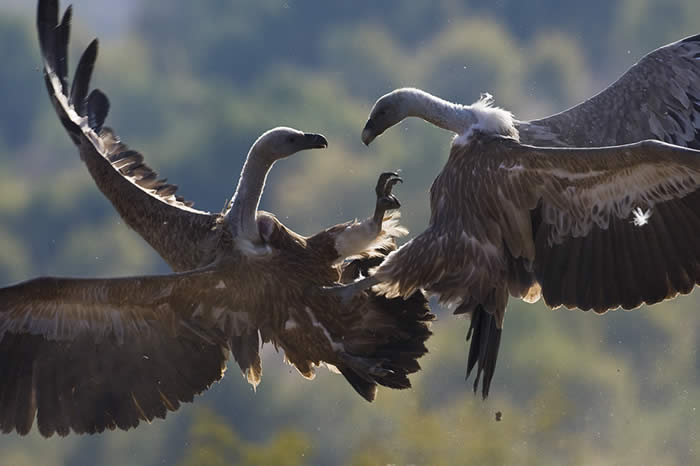Bulgaria news, January 2011
Dimiter Georgiev from Neophron, writes:
Pygmy cormorants breed again at Poda Nature Reserve
"After 18 years of absence, the globally threatened pygmy cormorant is breeding again in the Bourgas Lakes on Bulgaria's Black Sea coast. Last year (2010), 19 pairs built their nests and raised young. Fifteen of these were in the mixed colony of spoonbills, glossy ibises, herons and egrets in the Poda Nature Reserve, which is a regular hot spot on the Honeyguide tours to Bulgaria."
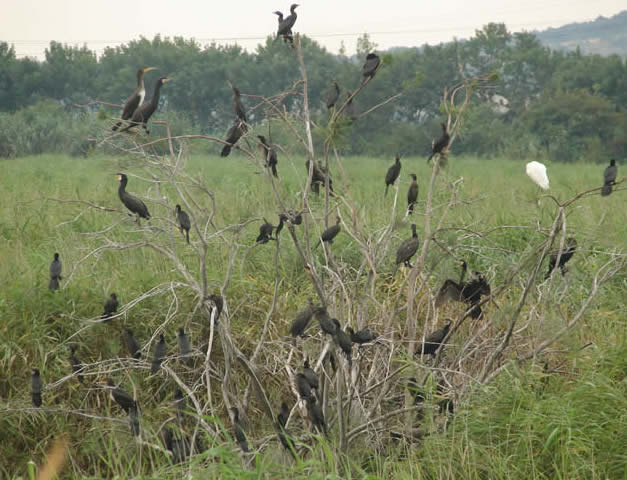
Pygmy cormorants with great cormorants (e.g. top left) and a little egret (BSPB)
"The creation of favorable conditions for the birds by building nesting platforms and restoring dykes, as well as the control and prevention of illegal fishing in the area, will guarantee the species’ long-term conservation."
Ecological training for young people
"More than 20 multimedia presentations were made at schools in the regions of Bourgas and the Eastern Rhodopes. These were about the threats, way of life and protection needs for the Egyptian vulture Neophron percnopterus (pictured, right) - the population of which has rapidly declined in the past decade - and the white-headed duck Oxyura leucocephala, a regular wintering visitor at the Bourgas wetlands.
"The objective of the presentations was raising the awareness of the school children in the key regions for the conservation of the two species. The presentations were carried out with the support of Honeyguide Wildlife Holidays." |
Success for griffon vultures in the Eastern Rhodopes
"On 20 November 2010, experts and volunteers from the Bulgarian Society for the Protection of Birds (BSPB) carried out a count of the roosting griffon vultures in the Eastern Rhodopes to establish the number of birds that spend the autumn and winter there. They spent the whole day surveying the bigger cliffs in the region.
"The count was done for a second consecutive year, the roosting vultures being counted in one and the same period of the day by all the teams. This allows great precision in the establishing of the number and age ratio of the birds. Sixty-six birds were counted in the Eastern Rhodopes. On the other side of the mountain our Greek colleagues established 42 roosting griffon vultures.
"In the past, thousand of griffon vulture pairs were breeding in our country, but with the decline of stock-breeding and the mass use of poison baits in the 1950s–1960s, the species was brought to the edge of extinction. Since it was founded in 1988 the BSPB, has been working for the conservation and studying of this threatened species by organising artificial feeding sites and raising the awareness of the local people. These long-standing efforts brought about the gradual increase of the species’ population, which last year (2010) reached 47 breeding pairs in Bulgaria."
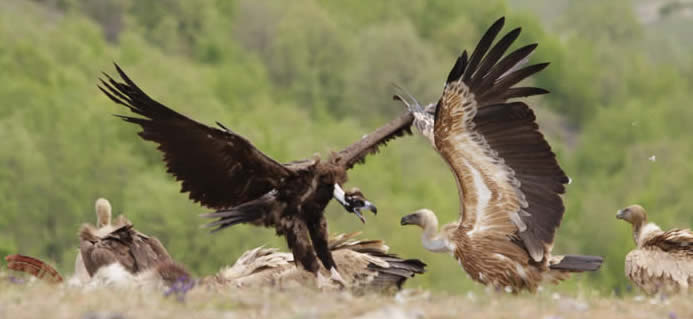
Vultures at the Eastern Rhodopes feeding station (Mladen Vasilev).
Centre left is a black vulture: the others are griffons.
Dimiter Georgiev, January 2011
Our main Bulgaria web page . . . . . . . . . . News . . . . . . . . . . . Nature notes



